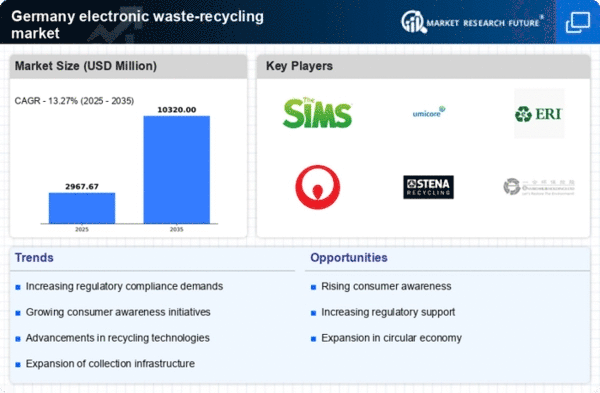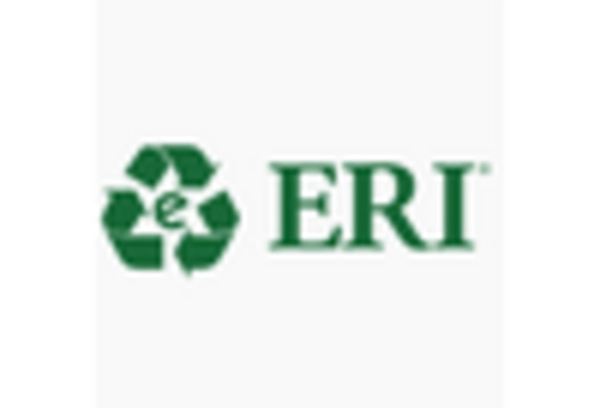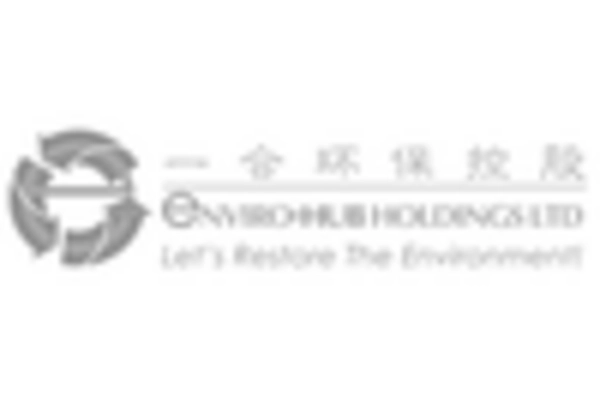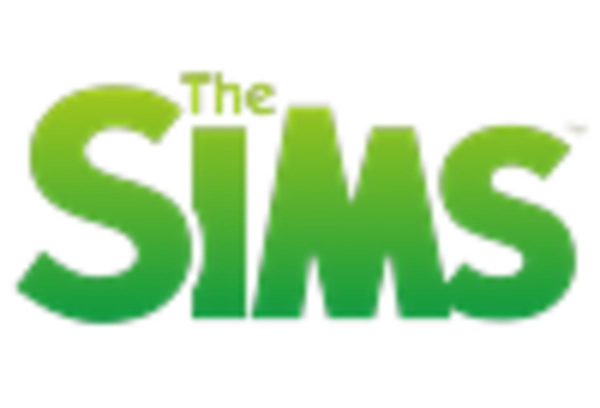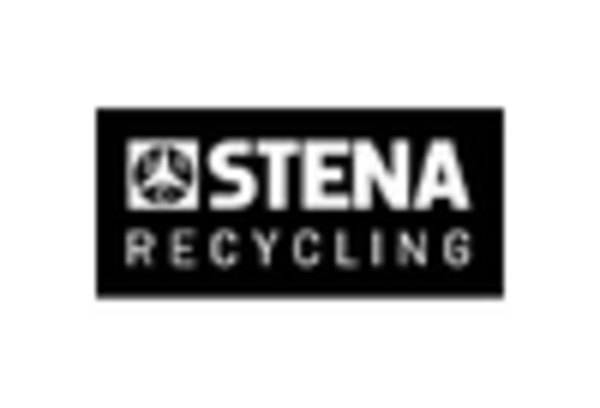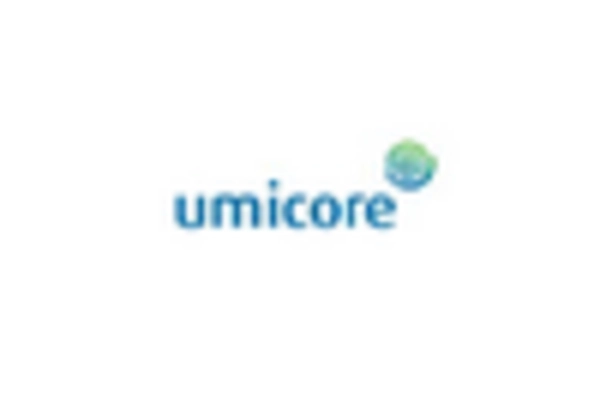Circular Economy Initiatives
The concept of a circular economy is gaining traction in Germany, significantly influencing the electronic waste-recycling market. This model emphasizes the importance of reusing and recycling materials to minimize waste and reduce resource consumption. In 2025, the German government aims to achieve a recycling rate of 65% for electronic waste, which aligns with circular economy principles. This initiative encourages businesses to develop strategies that incorporate recycling into their operations. As companies adopt circular economy practices, the electronic waste-recycling market is expected to expand, driven by the need for sustainable resource management and waste reduction. This shift not only benefits the environment but also creates new business opportunities.
Rising Environmental Concerns
The increasing awareness of environmental issues in Germany is driving the electronic waste-recycling market. Citizens are becoming more conscious of the ecological impact of electronic waste, which contains hazardous materials that can harm the environment. This heightened awareness has led to a demand for effective recycling solutions. In 2023, approximately 1.5 million tonnes of electronic waste were generated in Germany, highlighting the urgent need for sustainable disposal methods. The government has implemented stricter regulations to promote recycling, which further stimulates market growth. As a result, companies in the electronic waste-recycling market are innovating to provide eco-friendly solutions, thereby aligning with public sentiment and regulatory requirements.
Government Incentives and Policies
Government initiatives play a crucial role in shaping the electronic waste-recycling market in Germany. The government has introduced various incentives to encourage recycling practices among consumers and businesses. For instance, financial subsidies for recycling programs and tax benefits for companies that engage in sustainable practices are becoming more common. In 2024, the German government allocated €50 million to support electronic waste management initiatives, which is expected to enhance recycling rates. These policies not only promote responsible disposal but also create a favorable environment for businesses operating in the electronic waste-recycling market. Consequently, the market is likely to experience growth as more stakeholders participate in recycling efforts.
Technological Innovations in Recycling
Technological advancements are significantly influencing the electronic waste-recycling market in Germany. Innovations in recycling technologies, such as automated sorting systems and advanced material recovery techniques, are enhancing the efficiency of recycling processes. These technologies enable recyclers to recover valuable materials from electronic waste, such as gold, silver, and rare earth metals, which can be worth millions. In 2025, the market for recovered materials is projected to reach €1 billion, indicating a lucrative opportunity for businesses. As technology continues to evolve, the electronic waste-recycling market is likely to benefit from improved operational efficiencies and increased profitability, attracting more investments.
Growing Demand for Sustainable Products
The shift towards sustainability is reshaping consumer preferences in Germany, thereby impacting the electronic waste-recycling market. Consumers are increasingly seeking products that are environmentally friendly and ethically sourced. This trend is prompting manufacturers to adopt sustainable practices, including responsible recycling of electronic products. In 2025, it is estimated that 70% of consumers in Germany will prioritize sustainability when making purchasing decisions. This growing demand is encouraging companies in the electronic waste-recycling market to enhance their recycling capabilities and promote their eco-friendly initiatives. As a result, businesses that align with these consumer values are likely to gain a competitive edge.

